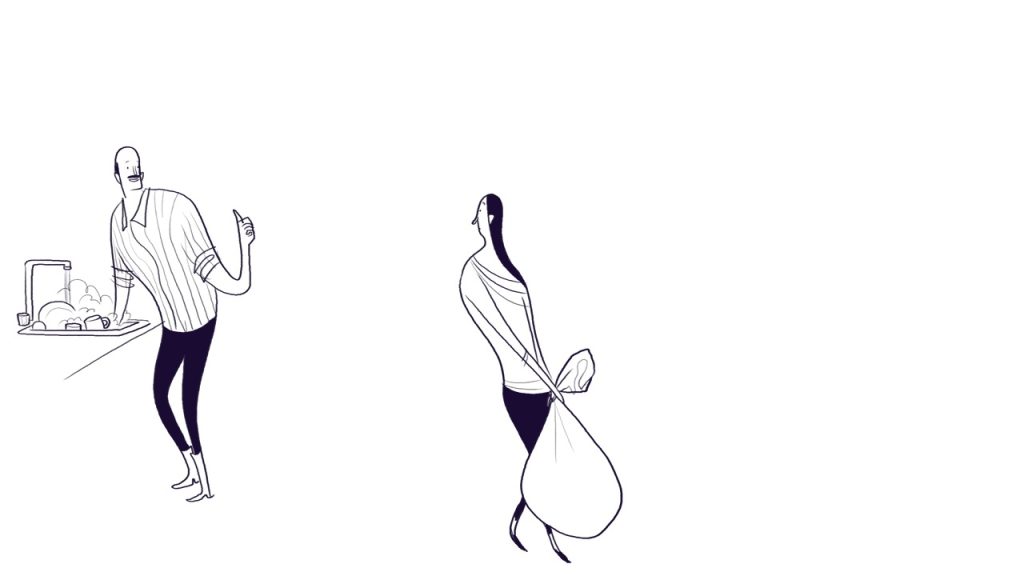Dialectical Behavior Therapy for Recovery Support


Illustration © Eleanor Davis
One of our members on Allies in Recovery’s member site wrote in recently on the Discussion Blog, to continue our conversation about her daughter’s progress towards recovery, and inquire about Dialectical Behavior Therapy:
“Thank you for your comments and advice. Her free time is what worries me as well. She does much better when she is busy. She had mentioned to me that she wanted to join a gym. I will be sure to see that she gets that in motion. What she liked about the IOP was the individual counseling and the groups. (although she has never been a fan of AA, but liked NA groups).
I would love to hear more about Dialectical Therapy. I read what is online here, but don’t understand how to find a group here in MA for her to attend. Any suggestions for me?
She has said in the past that she was not feeling the need to go on MAT because she felt she was in control and could stop if she wanted. I will bring this up again now that she appears to be struggling with this issue.
She also said she would be willing to go and talk to someone. I may even attend a few with her as she indicated this may be something she would be open to.
My husband and I have been able to find the time for us, finally! Now that she is slowly moving in the right direction, it is easier to have “daughter” free time.
The scariest part for me is that she is on probation for another 18 months. If she is caught doing anything drug or alcohol related then she will be sentenced for some time. I would hate to see this happen where she is making good progress. She does have a great rapport with her PO, which is good. This is something I need to handle better or it is going to be a long 18 months for me.”
We are fans of Dialectical Behavior Therapy (DBT) for help with the recovery process.
DBT has four components:
1— Mindfulness: the practice of being fully aware and present in this one moment
2—Distress Tolerance: how to tolerate pain in difficult situations, not change it
3—Interpersonal Effectiveness: how to ask for what you want and say no while maintaining self-respect and relationships with others
4—Emotion Regulation: how to change emotions that you want to change
While DBT was originally designed for people with suicidal tendencies, it is effective for a host of conditions. DBT is typically taught in groups plus individual therapy. The creator of DBT, Marsha Linehan, provides a directory of practitioners trained by her institute. If you don’t find anyone in this directory, contact us for additional information about DBT if you are in Massachusetts. You can also follow our guide to finding treatment in Our Treatment Resources on our member site.
The Upside of the Criminal Justice System
The unfortunate reality is that a lot of people end up in the criminal justice system for non-violent drug and alcohol offenses. More and more however, the courts are moving people towards treatment. Probation, with mandated treatment and drug testing, in itself is not such a bad outcome. There’s someone other than the family, someone with authority, providing oversight of your loved one. In a perfect world, should your loved one falter, this person in authority would step in with compassion, perhaps with more intensive treatment – that may not happen in your case but it could.
In the jurisdictions in which I’ve worked, the Probation Officers have had a lot of discretion. Some PO’s work with the person, others won’t listen to a word they have to say. It’s important that your daughter maintain that good rapport. If she violates, let’s hope her PO will insist on more treatment.
Slipping up can motivate one to change
And yes, it must be hard to think of what could happen should your daughter violate probation and be incarcerated. I’m not sure this makes it any easier, but know that jail can be a motivator to recognize just how far addiction has brought you down. It can be a catalyst for change.
I hope none of this happens to your daughter. One of the biggest predictors of success in recovery from substance abuse is readiness: her ability to realize the addiction problem and take some steps towards change. From your comment, it seems your daughter was open to her IOP treatment, and is open to trying new treatments. This is huge. The “Community” in Community Reinforcement and Family Training (CRAFT) is about connecting to community. Let’s get her busy by finding her some treatment options, a gym, a positive network, and anything else that she in interested in trying.
A membership at Allies in Recovery brings you into contact with experts in the fields of recovery and treatment for drug and alcohol issues. Our learning platform introduces you to CRAFT and guides you through the best techniques for unblocking the situation. Together we will move your loved one towards recovery. Learn more here.
